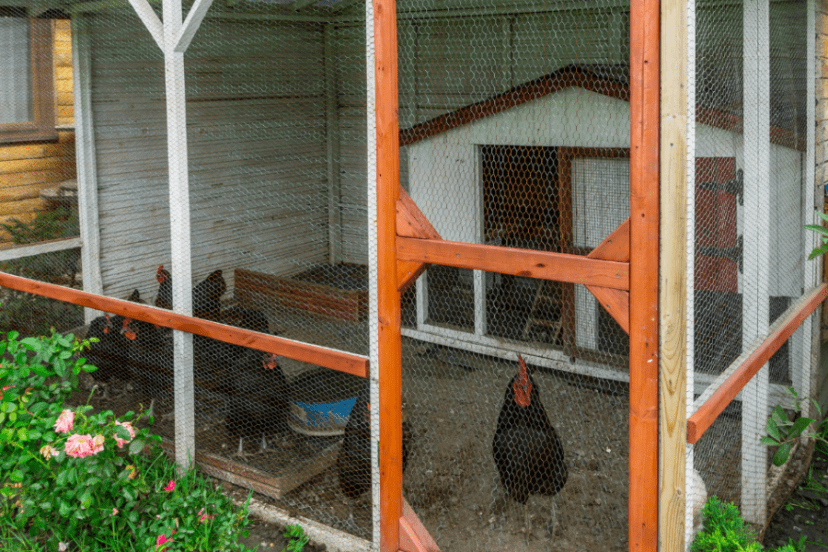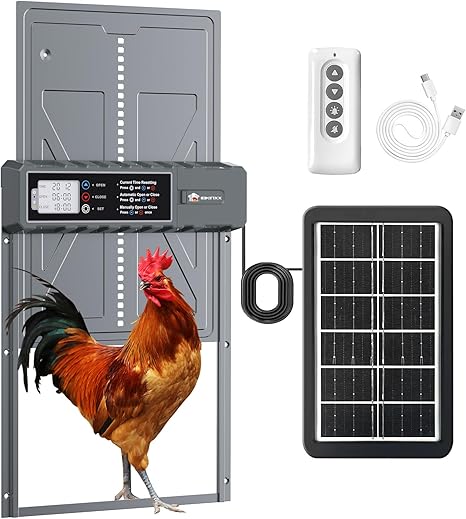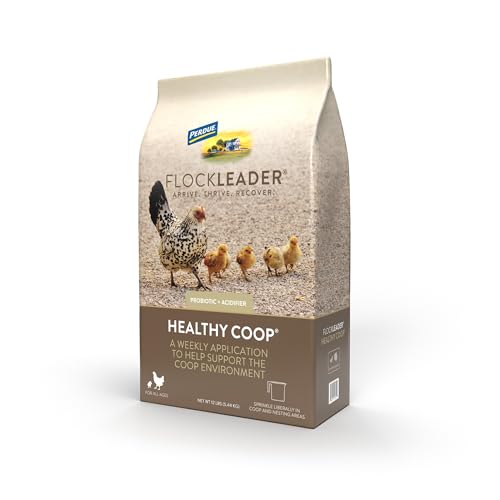7 Things Your Chicken Coop Must Have
Chicken keepers, are you looking to upgrade your feathered friends’ living space? Ensuring your chicken coop has the imperative features is crucial for the health and happiness of your flock. From protection against predators to proper ventilation, there are key elements that every chicken coop must have. Let’s look into the 7 must-have features to keep your chickens safe, comfortable, and laying delicious eggs!
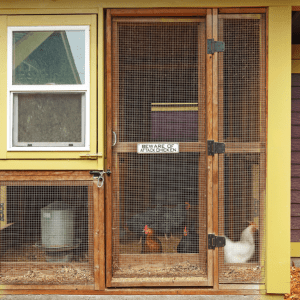
Key Takeaways:
- Proper ventilation is key to a healthy chicken coop environment.
- Security measures such as locks are important to keep your chickens safe from predators.
- Adequate space for your chickens to move around is important for their well-being and productivity.
- Nesting boxes provide a comfortable and safe location for hens to lay eggs.
- Easy access for cleaning is crucial to maintain a sanitary coop environment.
Comfortable and Spacious Living
The Importance of Space Per Chicken
If you want happy and healthy chickens, providing enough space in the coop is crucial. Overcrowding can lead to stress, pecking, and even diseases among the flock. Each chicken should have at least 4 square feet of space inside the coop. This allows them to move around freely, stretch their wings, and feel comfortable in their living environment.
Ventilation for Healthy Chickies
Living in a well-ventilated coop is imperative for the health of your chickens. Proper ventilation helps remove moisture, ammonia, and prevents the buildup of harmful gases. Make sure your coop has windows or vents that can be opened to allow fresh air to circulate. Good airflow can also regulate the temperature inside the coop, keeping your feathered friends cool in the summer and warm in the winter.
Importance: Providing adequate space and ventilation in your chicken coop is not just a matter of comfort, it is crucial for the health and well-being of your flock. Happy chickens are healthy chickens, so make sure to prioritize their living conditions when setting up your coop.

Protecting Your Flock
Fortifying Against Predators
On any given day, predators like foxes, raccoons, or even neighborhood dogs could pose a threat to your beloved flock. To keep them safe, make sure your chicken coop is fortified with sturdy fencing, locks on doors and windows, and even consider digging a few inches below the ground and lining the perimeter with wire to prevent digging.
Weatherproofing for All Seasons
For your chickens to thrive, they need to be protected from the elements all year round. A well-insulated coop with proper ventilation is key to ensuring they stay warm in winter and cool in summer. Consider installing windows that can be opened and closed as needed and using a thick layer of straw for bedding to provide extra warmth during colder months.
A well-designed roof that slopes to prevent water from pooling and causing leaks is also crucial. Additionally, make sure to seal any cracks or gaps in the coop to keep out drafts and moisture, which can lead to respiratory issues in your feathered friends.
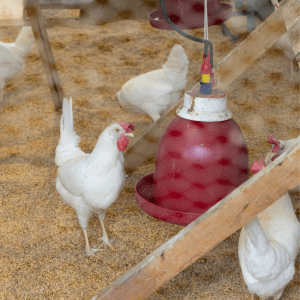
The Essentials of Nesting and Roosting
Nesting Boxes for Egg-Laying Comfort
Keep your hens happy and comfortable with the right nesting boxes in your coop. These areas provide a private and cozy space for your chickens to lay their eggs daily. Make sure the nesting boxes are lined with soft bedding like straw or wood shavings to keep the eggs clean and prevent breakage. Providing one box for every 3-4 hens is ideal to ensure they all have a spot to lay their eggs in peace.
Proper Roosting Bars for a Good Night’s Sleep
With a suitable roosting area, your chickens can rest comfortably at night. Roosting bars should be placed higher than the nesting boxes to encourage your chickens to sleep there at night. Make sure the bars are wide enough for your chickens to perch comfortably, with at least 8 inches of space per bird. This will prevent overcrowding and allow them to roost without feeling cramped.
Understanding Proper Roosting Bar Placement
Proper roosting bar placement is crucial for your chickens’ safety and well-being. Placing the bars higher than the nesting boxes helps prevent the chickens from sleeping in the nesting area and soiling the eggs. Additionally, ensuring enough space per bird on the roosting bars prevents aggression and allows each chicken to have their own space. By providing a comfortable and safe roosting area, you are promoting good sleep habits and overall health for your feathered friends.
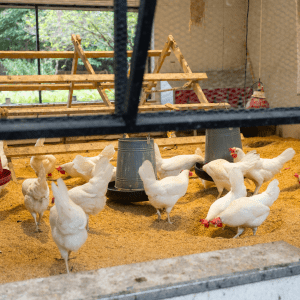
Food, Water, and Supplements
Feeder and Waterer Placement and Maintenance
Chicken Waterer
Many chicken owners underestimate the importance of proper feeder and waterer placement and maintenance. Water should always be clean and easily accessible for your flock. Make sure to place waterers at a height that is comfortable for the chickens to reach and clean them regularly to prevent the growth of harmful bacteria. Similarly, feeders should be positioned in a way that prevents spillage and contamination.
Nutritional Additives for Happy Hens
Many chicken feeds provide the imperative nutrients your hens need, but sometimes additional Hens may benefit from nutritional supplements. It’s crucial to consult with a poultry nutritionist before adding any additives to your chickens’ diet. It is important to note that too much of certain supplements can be harmful to your flock, so it’s best to follow expert recommendations.
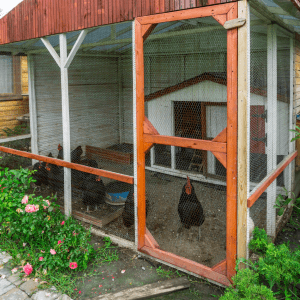
Maintenance Musts
Cleaning and Sanitizing Your Coop
Sanitizing your chicken coop is vital to keep your flock healthy and happy. Regularly cleaning out droppings, old bedding, and replacing it with fresh, dry material will help prevent the buildup of harmful bacteria. Use a pet-safe disinfectant to sanitize the coop, paying special attention to roosting bars and nesting boxes. Keeping your coop clean will reduce the risk of diseases and ensure a comfortable living environment for your chickens.
Pest Control Strategies
Coop pests can quickly become a nuisance and a threat to your chickens’ health. Implementing pest control strategies such as sealing entry points, using predator-proof fencing, and regularly cleaning up spilled feed can help deter pests like rats, mice, and insects. Consider using natural predators like cats or installing traps in areas where pests are a recurring problem. A clean and well-maintained coop is less attractive to pests looking for food and shelter.
Understanding the importance of regular cleaning and pest control in your chicken coop is crucial for the well-being of your flock. By properly sanitizing and implementing effective pest control measures, you can create a safe and healthy environment for your chickens to thrive. Stay proactive in maintaining your coop to prevent potential health hazards and ensure a happy and productive flock.
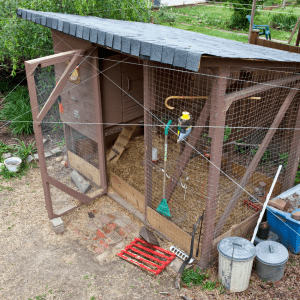
Keeping Chickens Entertained
Outdoor Runs for Exercise and Enjoyment
Your chickens need space to stretch their wings, scratch around, and explore. Outdoor runs not only provide exercise opportunities but also keep them mentally stimulated. Make sure to include perches, hiding spots, and different textures like grass and dirt to keep them entertained.
Toys and Activities to Prevent Boredom
Toys and activities are a fun way to keep your chickens engaged and prevent boredom in the coop. Outdoor items such as hanging treats, mirrors, and even a DIY chicken swing can provide hours of entertainment. Rotating toys regularly will keep them from losing interest.
Toys such as balls of string, shiny objects, or even a simple DIY puzzle feeder can keep your chickens mentally stimulated. It’s necessary to provide a variety of toys and activities to prevent boredom and encourage natural behaviors like pecking and scratching. Keeping your flock entertained will lead to happier and healthier chickens overall.
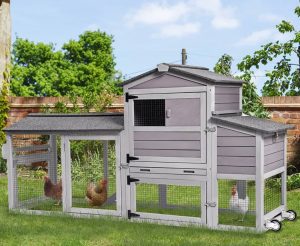
To wrap up
Conclusively, ensuring your chicken coop has these 7 imperative features will provide a safe, comfortable, and productive environment for your feathered friends. From proper ventilation and security measures to adequate space and nesting boxes, each element plays a vital role in maintaining the health and well-being of your chickens. By incorporating these necessities into your coop design, you can create a happy and thriving home for your flock.
FAQ
Q: What is the first thing my chicken coop must have?
A: Your chicken coop must have enough space to comfortably house all your chickens. A general rule of thumb is to provide at least 2-3 square feet per chicken inside the coop and 8-10 square feet per chicken in the outdoor run.
Q: What kind of ventilation is vital for a chicken coop?
A: Proper ventilation is crucial for a chicken coop to prevent the buildup of harmful ammonia fumes and moisture. Make sure your coop has windows or vents that can be opened to allow for fresh air circulation.
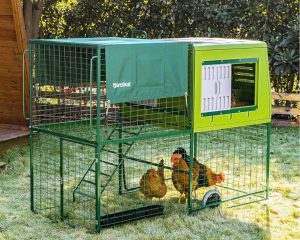
Q: How important is security for a chicken coop?
A: Security is paramount for a chicken coop to protect your flock from predators. Make sure your coop has sturdy walls and a predator-proof latching system on the doors. Consider burying hardware cloth around the perimeter to deter digging predators.
Q: Why is nesting space important in a chicken coop?
A: Nesting space is vital in a chicken coop to provide a comfortable and private area for hens to lay their eggs. Each nesting box should be about 12×12 inches and filled with soft bedding material like straw or wood shavings.
Q: Do I need to include roosting bars in my chicken coop?
A: Yes, roosting bars are necessary in a chicken coop to give your birds a place to perch and sleep off the ground. The bars should be about 2-4 feet off the ground and provide at least 8 inches of space per chicken.
Adding Dried Herbs in Chicken Feed
Bears and Chickens – How to Prevent Encounters
Chicken Waterer

